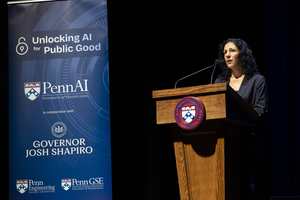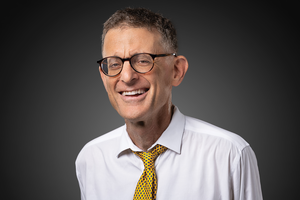Professor Michael Gottfried, a leading expert in the economics of education and education policy, spoke to the San Francisco Examiner about chronic absenteeism this month.
Being chronically absent means missing 10 percent or more of the school year. "It's happening across the nation," said Gottfried. "There are kids missing school in rural Pennsylvania and kids missing school in Philadelphia, but the data show it's particularly bad in big cities." Absenteeism has been on the rise for a while, but the numbers spiked following the transition to remote learning during the pandemic.
The Examiner article, titled "A quarter of San Francisco public school students were chronically absent last year," looked at Gottfried's list of four impacts that missing school has on students: school finances, literacy/math learning, child development, and effect on peers.
When kids miss classes in California, their schools suffer financially because school funding is tied to students being physically present. As for learning outcomes, students take a hit in both reading and math skills when they are chronically absent, but especially in math: parents often find it easier to read to children rather than solve equation together. Third, being separated from school also takes a tool on a child's overall development, and finally, their peers can suffer if teachers slow down their lessons to keep a sometime-student in the loop.
Besides absenteeism, Gottfried specializes in early education and career and technical education. He’s previously done research about absenteeism at the request of Vice President Kamala Harris when she was the attorney general of California. Before coming to Penn GSE, Gottfried taught at the University of California, Santa Barbara. He now chairs Penn GSE's Policy, Organizations, Leadership, and Systems Division.
Trained as an economist at both Stanford and the Wharton School at Penn, Gottfried looks at education production: what factors matter when we "produce" an educational outcome, and how do these factors interact with each other? When he teaches Penn GSE master's students, they study education through theories and methods from economics: supply and demand, cost efficiency, and so on.
Gottfried makes an analogy to building cars. "We have factors that matter for building a car — you need glass, steel, rubber, oil — and over time we realized we didn't need material like wood to build a car, and we realized that four wheels on a car is better than three or six," he said. "We do the same thing with education: We ask ourselves which factors matter for the outcome we want to achieve."
Factors include parental involvement, socioeconomic status, disability status, and whether or not a school has air conditioning. As for food: Do kids eat breakfast, and if so, where are they eating it — at home or at school? Do all the kids eat breakfast together at the school, or just some (and is their stigma attached to it)? How many children with disabilities are in separate classes, and how many are integrated into classes with the rest of their general education peers?
Gottfried says these factors can be correlated to outcomes, such as test scores or graduation rates. "We can look at something that wasn't designed to be an experiment as if it were an experiment," he said. "Which factors are changeable? Which are contextual? And what outcome is replicable going forward?"
He spent much of the past decade getting the word out about the steady rise in absenteeism. Now that people are listening, Gottfried has shifted his focus to replicable and scalable solutions. He wants to do work that connects districts, principals, and teachers to research that they can use to make immediate changes in their schools.
Head over to the San Francisco Examiner to read the full article.
Media Inquiries
Penn GSE Communications is here to help reporters connect with the education experts they need.








